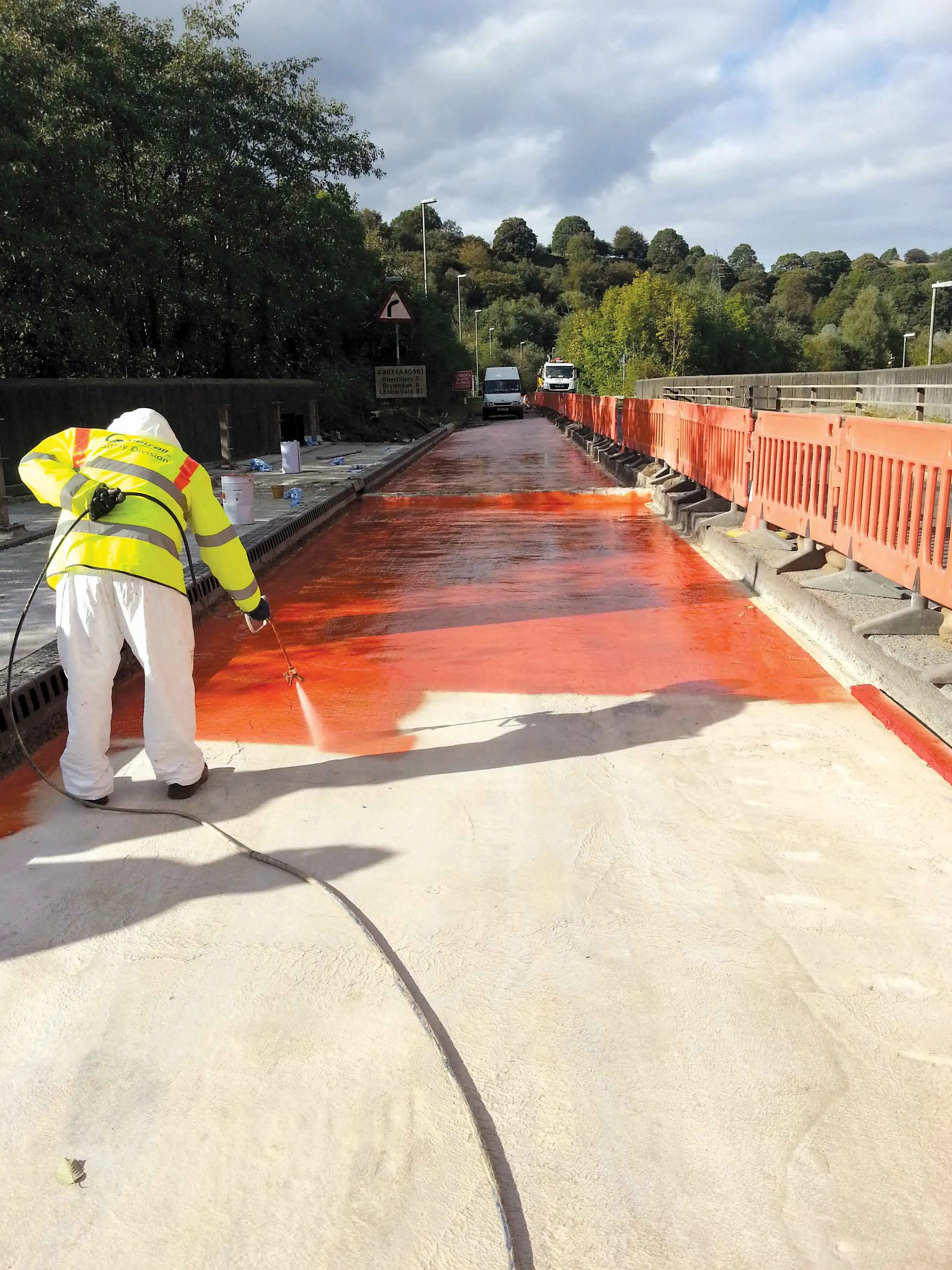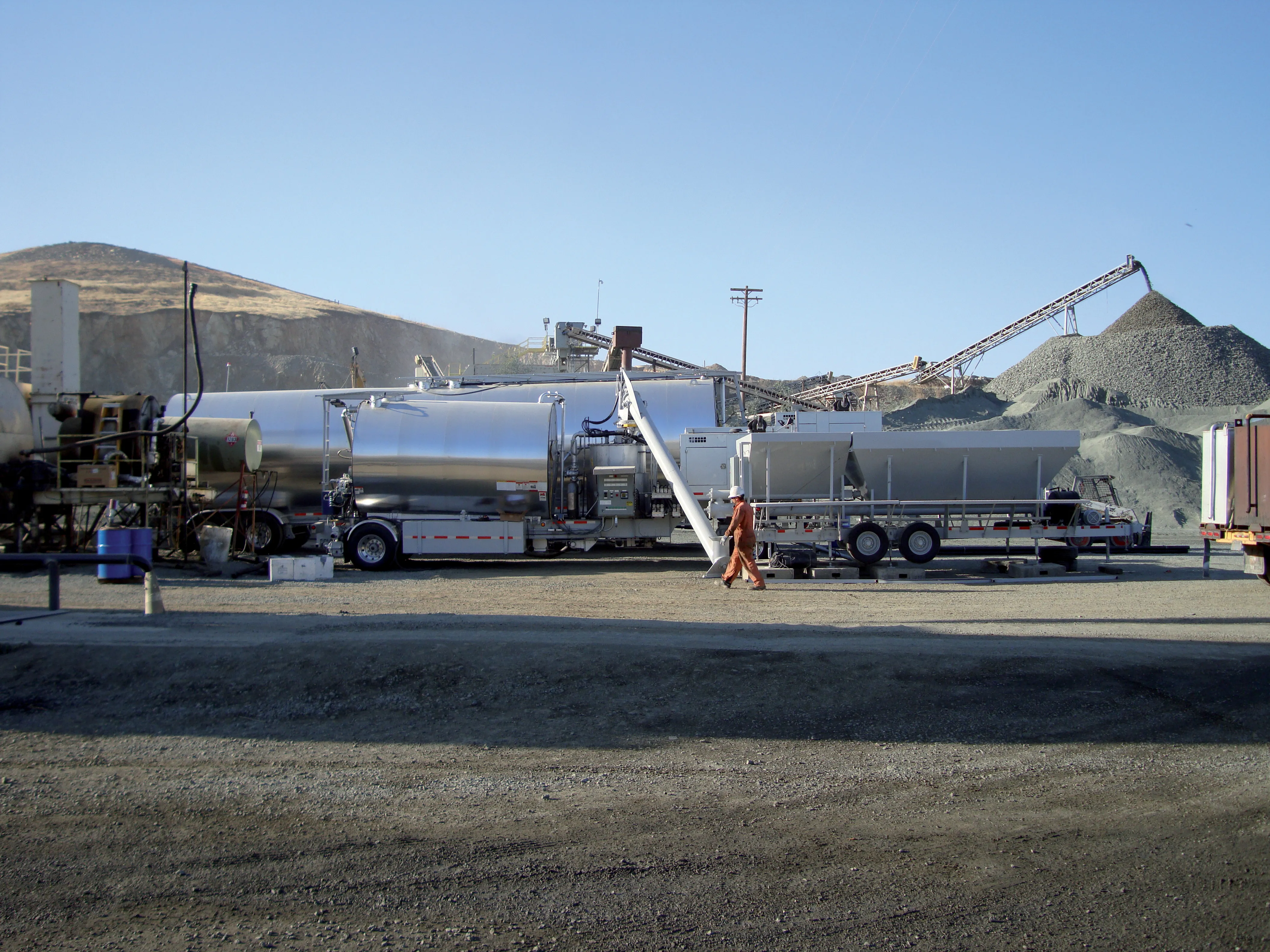Stirling Lloyd Polychem has introduced a cold, spray-applied bond coat that it says provides enhanced adhesion values and superior in-situ performance
Bond Coat 3, part of the Eliminator bridge deck waterproofing system, “represents a significant development” in the provision of tack and bond coats that are used to adhere the asphalt surfacing to the waterproofing.
It provides a fast-curing tack-free, durable protective finish that resists contamination and damage from traffic. It removes the risk of
July 7, 2016
Read time: 2 mins

Bond Coat 3, part of the Eliminator bridge deck waterproofing system, “represents a significant development” in the provision of tack and bond coats that are used to adhere the asphalt surfacing to the waterproofing.
It provides a fast-curing tack-free, durable protective finish that resists contamination and damage from traffic. It removes the risk of tyre pick-up, a common problem with conventional bitumen-based bond coats.
Bond Coat 3 is a cold reactive resin system. But unlike polymer modified bitumen bond coats, the same application equipment that applies the primer and membrane can be used to apply Bond Coat 3. This reduces plant mobilisation, costs and application times.
With an activation temperature of only 90°C, Bond Coat 3 reacts with lower temperature asphalt mixes now widely used in the industry, without compromising the strong bond it achieves with asphalt surfacing. This also includes those where the bitumen content is low or where the surfacing layer is relatively thin. Avoiding the use of hot materials, the new cold-applied bond coat also improves on-site safety.
Stirling Lloyd says that independent laboratory testing has shown that Bond Coat 3 surpasses all of the enhanced adhesion requirements specified in
“The Bond Coat 3 system offers a more efficient alternative to polymer modified bitumen bond coats,” said Cliff Weston, director at Stirling Lloyd. “Bond Coat 3 provides a durable, tack-free finish, even in warm temperatures, which, for waterproofing contractors, will mean that they don’t have to return to the site for a second visit. The bond coat can be installed immediately after the membrane with less risk of damage and contamination from subsequent trades.”
Since the launch of the new product, Stirling Lloyd says that Bond Coat 3 has been used on numerous bridges, including the M8/M73/M74 interchange near Glasgow as part of Transport Scotland’s motorway improvement measures and in England on the M6 Heysham Link for Highways England.









